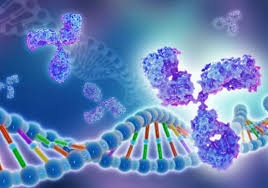One of the worst diseases for men could be Prostate Cancer. This type of cancer in men, not only is painful but also its surgery and cure are also associated with discomfort and pain. Although a discovery by an Iranian female professor about 2 decades ago in US proved that drinking one glass of processed tomato juice per day will prevent or even cure the problem, but there are millions of men who never have heard about it. Something that has successfully experimented by our colleagues. Due to the importance of publishing as more as possible studies, the following article has been selected, copied and paste. But this is not our job, we always furnish all these kinds of articles with more images and hyperlinks (shown in BOLD fonts)
*************************************************
Melbourne-based scientists have, for the first time, discovered how to “switch off” a molecule which is one of  the top culprits behind prostate cancer, and is also linked to lung and kidney cancers.
the top culprits behind prostate cancer, and is also linked to lung and kidney cancers.

The “dark molecule“—meaning it’s understudied—is known as “Protein Serine Kinase H1” (PSKH1) and is associated with tumor progression and metastasis. However, until now, how it does this has been unknown.

In the case of PSKH1, which is a “signaling molecule,” the researchers found that when it binds to a protein called Calmodulin PSKH1 is “switched on” and when it binds to a protein called Reticulocalbin it is “switched off.”
Joint senior author, Dr. John Scott from MIPS, describes this signaling activity as “a balancing act within our cells.”
“Tumors form because cells ignore normal signals that tell them it’s time to stop growing, or that it’s time to die. When a signaling molecule, such as PSKH1, interacts with certain proteins on a cell surface, this binding triggers a chain of events that can amplify the cell activity and lead to the formation of tumors,” Dr. Scott said.

In 2024, prostate cancer was estimated to be the most commonly diagnosed cancer for males and for Australia overall. Treatments such as hormone therapy and chemotherapy can be effective, yet the side effects can be debilitating.
Related video: Scientists discover an innovative technique for treating cancer (Tagtik)
“Switching off PSKH1 essentially means being able to stop the progression of implicated cancers in their track, and thereby this new information opens up a whole new world of potential when it comes to developing new drugs,” Professor Murphy said.
“From here, our goal is to explore how we can start to develop new effective therapies, with fewer side effects.”
Excitingly, understanding the mechanisms of how to switch PSKH1 on and off can also be applied to other molecules within the same family, broadening the potential of the study’s findings to other cancers and diseases.
More information: Christopher R. Horne et al, PSKH1 kinase activity is differentially modulated via allosteric binding of Ca2+ sensor proteins, Proceedings of the National Academy of Sciences (2025). DOI: 10.1073/pnas.2420961122
Provided by Monash University
This story was originally published on Medical Xpress.











